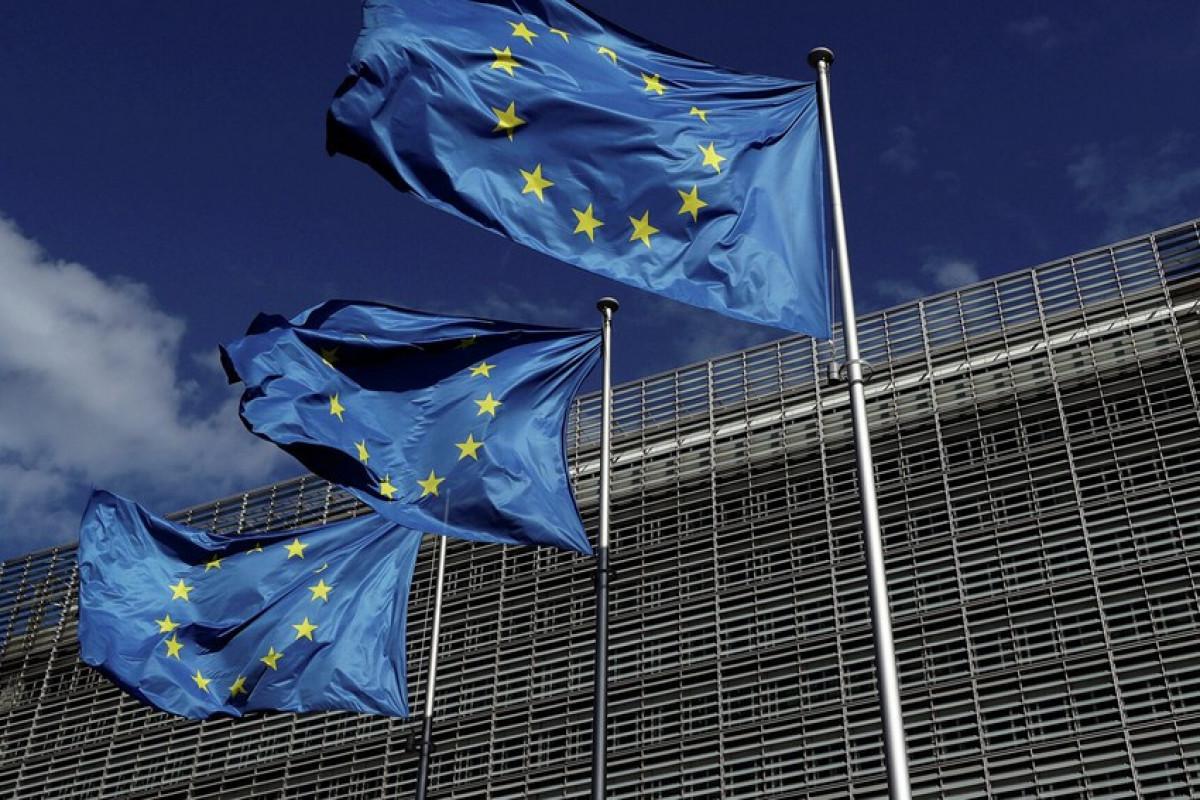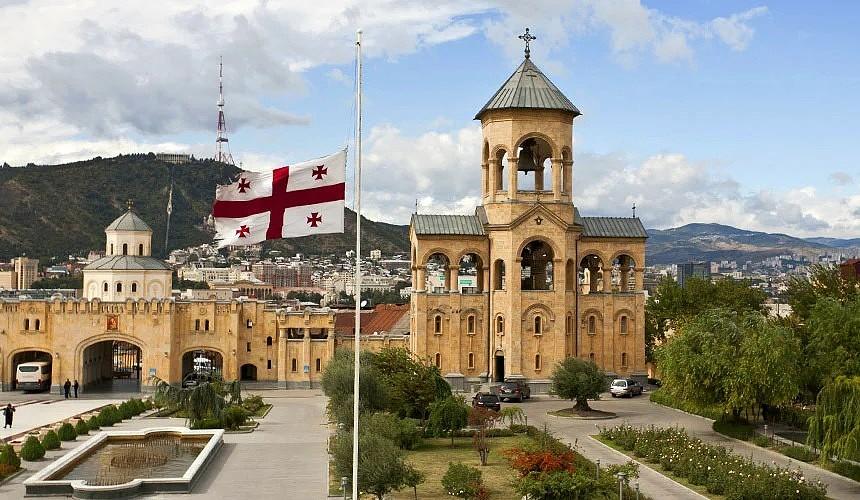Expert: Georgia no longer trusted in Europe Georgian political expert Merkviladze on Caliber.Az
Caliber.Az presents an interview with Georgian doctor of historical sciences, political scientist Davit Merkviladze.
- The EU decided to grant candidate status to Moldova and Ukraine, and Georgia was told that it had to resolve certain problems. Why do you think the EU did this?
- The European Union is a political and economic association of developed European states. It has its own firmly defined principles. These principles are based on the rule of law and the protection of human rights. The question of human dignity, freedom and equality, together with democracy in general, is the unchanging value of the EU.
Accordingly, if any state expresses a desire to become a member of this union, it must comply with its conditions.
The Georgian government has openly stated that it will have to submit a formal application for EU membership in 2024. Everything changed with the open attack of Russia on Ukraine, which led to a full-scale war, mass casualties and destruction. A peculiar expression of support for Ukraine was the urge to apply for EU membership. But at this stage, Georgia and Moldova will be considered together with Ukraine in the queue for EU enlargement. A few years ago, Georgia was considered the leader of this trio as the readiest to fulfil the conditions of the EU. However, many events that have unfolded in the country over the past three or four years have significantly damaged in the eyes of the West its image of a democratic state focused on protecting human rights.
The Georgian government initially did not intend to apply for EU membership until 2024. Probably, the authorities realised that there would be no satisfactory answer to the request, and this would negatively affect their political rating. The vast majority of Georgian citizens (according to sociological surveys, about 80 per cent) are unconditional supporters of European integration. But political opposition and public pressure forced the government to apply this spring.
The decision of the EU was not a surprise. The issues discussed and the resolutions adopted clearly showed that there were serious claims against Georgia. It cannot be said that now everything is in order in Ukraine and Moldova, but they nevertheless received candidate status on the condition that they carry out the necessary reforms. Georgia, on the contrary, was given until the end of the year to carry out the relevant reforms, after which they promised to grant the status of an EU candidate member. I think this means that the Georgian government is simply no longer trusted in Europe, and there are objective reasons for this.
- That is, this decision of the EU was political and connected with the fact that Georgia did not open a second front against Russia?
- Such an interpretation is a very weak attempt by the current government of Georgia to evade its own responsibility for the rejection of the candidacy. It is clear that Ukraine's candidacy was greatly influenced by the fact that it is involved in a very serious war with Russia. But is Moldova participating in this war? Why no one is asking it to open a second front against Russia? The separatist part of its territory (Transnistria) is actually occupied by the Russian troops. The Georgian government's argument regarding Moldova's candidacy that it is not far from the scene of hostilities is simply unserious.
Georgian Dream party leaders and their supporters initially accused the United National Movement and some politicians from Ukraine of wanting to draw Georgia into a war against Russia. They claimed that they dreamed of organising a "second Mariupol" in Georgia, etc. Later they "discovered" that they were only pawns and, it turned out, influential political circles in Europe and the US were interested in this adventure.

However, we all saw that the European Union (and the common so-called Western states) tried their best to avoid war. They understood that after blackmailing the Kremlin and satisfying harsh ultimatums, its aggressive ambitions would become even stronger (we can recall the example of Hitler's pretensions before World War II). Opening a second front by Georgia would only be an additional headache for Europe, and accusing it of such a thing serves to purposefully inflame anti-Western sentiments in the country. Which, of course, fully corresponds to the interests of the Kremlin.
The EU has sent Georgia a well-defined 12-point agenda on where changes should be made: electoral, judicial and anti-corruption issues; ensuring an independent media environment, strengthening the fight against crime, protecting women from violence, etc. I would especially single out the fifth point: the fulfilment of the obligation to de-oligarchise the state, which is undoubtedly essential. This constitutes the end to the informal governing of [Georgian politician, billionaire businessman and philanthropist, who served as Prime Minister of Georgia from October 2012 to November 2013, Bidzina] Ivanishvili. Such recommendations undoubtedly indicate to us that we have serious problems in these areas and Europe is well aware of this.
- If Saakashvili was in power, would Georgia get the status of a candidate for EU membership?
- In the days of Saakashvili in power, obviously, a lot was wrong. Of course, there were problems in different directions. However, compared to the situation before Saakashvili came to power, during his presidency, the state has made tremendous progress. As a result of the reforms carried out during his tenure, Georgia has significantly outstripped Ukraine and Moldova on the path to European integration (according to Prime Minister Irakli Garibashvili, it is still ahead, but this assertion lacks credibility).
Would Georgia have received EU candidate status if Saakashvili had been in power? I think it is impossible to give a direct answer to this... Everything could have depended on the situation in Georgia. The fact is that in the 10th year of the Georgian Dream government, the slowdown in democratic development is obvious.
- How do you think, would Georgia keep striving to integrate into the EU after such an unpleasant rejection?
- I confess, it seems that lately, the desire of the Georgian Dream government towards Europe has remained only at the level of declarations. In addition, the government's statements (not to mention the court's decisions on so-called political cases at the time of applying for candidacy to the EU) sometimes directly contradict the European integration course proclaimed by the country.
I think that the leadership of Georgia is in a difficult situation in this sense: on the one hand, it must officially confirm its aspiration to Europe, since this is the will of the absolute majority of the population and it cannot be openly opposed. On the other hand, it is well aware that the transition to the terms of the EU means the eradication of elitist corruption, the end of the dubious prosecution of representatives of the political opposition, and the provision of fair and free elections, etc. All this will lead to the unconditional removal of the Georgian Dream from power, which they are very afraid of. Due to this, they are trying to integrate into the EU, and simultaneously creating obstacles along the way. In other words, the desire of the Georgian government for the EU is currently insufficient and has a semi-formal character.
- Do you think Georgia should move to the West or is it time to look back to the East, towards Azerbaijan and Türkiye?
- In this regard, Georgia does not have much choice. For us, rapprochement with Europe (and the West in general) is the only way to develop and get rid of the pernicious influence of the Kremlin. Therefore, the farther we move away from Europe, the more difficult it will be for us to escape from the clutches of the double-headed eagle.
As for Azerbaijan and Türkiye, Georgia's desire for Europe will not affect the quality of political or economic relations with them. Moreover, European states are no less interested in close political and economic ties between these three states. Azerbaijani energy resources are delivered to Europe thanks to the close economic cooperation of these three states. To get rid of Russia's energy dependence (everyone is tired of the Kremlin using its energy resources as an instrument of political blackmail), a project is being actively developed to supply Central Asian oil and gas to Europe bypassing Russia and through the Caspian Sea. This issue cannot be resolved without the joint and coordinated participation of Azerbaijan, Georgia and Türkiye. All this, along with other reasons, determines that these states are still considered strategic partners of each other.

- Recently, many MPs left the Georgian Dream. Is it possible to talk about a split in the ranks of the ruling party?
- When the Georgian Dream party came to power, it was a political bloc, from which all other political parties gradually left. As a result, the Dream has become a party left to itself, without allies. However, before that, it managed to firmly secure the government. Later, enthusiastic pro-Westerners, including the current parliamentarians, left it. The split in the party looked more like former Prime Minister Giorgi Gakharia and his team went into opposition and formed a separate party.
As for the departure of three MPs from the ruling party these days, I cannot call it a party split. Firstly, both those who left the party and the party leadership officially declared that there is no ideological and worldview difference between them. And those who left the party simply decided to speak loudly about issues that the Georgian Dream diplomatically abstains from. These questions are connected with the intensified exposure of the "insidious" plans of the West against the state interests of Georgia.
The leaders of the Georgian Dream do not officially distance themselves from such statements and sometimes repeat the same thing, but less harshly. Accordingly, the withdrawal of this trio of MPs close to Ivanishvili from the party seems to be part of a pre-agreed plan so that their relatively anti-Western statements, in fact, expressing the semi-hidden position of the Georgian Dream, would not be considered an official statement.
- Even so, in December, the EU must decide on the status of Georgia. What are your expectations? Will the decision be negative, as in June, or still positive?
- Making predictions is always difficult and risky. For Georgia to be granted candidate status, it is necessary to follow the procedures prescribed in the application. So far, it does not appear that the Georgian Dream will essentially go for the satisfaction of demands, the indispensable condition of which is the recognition of the existence of problems. But they are not going to do it yet. Officially, only a decision was made to create a parliamentary working group that will deal with these issues. Moreover, some parliamentary opposition factions have already refused to participate in it under the pretext of mistrust.
To win the trust of the opposition and mitigate political polarization, the authorities can take certain steps on their own but do not rush to do so, which does not contribute to cooperation between the opposing political forces. Be that as it may, it is difficult to imagine the fulfilment of the demand for de-oligarchisation under the Georgian Dream government. And without this, the implementation of the other main parts of the points sent by the EU will be impossible. I think that if there are no significant changes in the Georgian political reality, we should not expect that the country will receive the status of a candidate before the end of the year. However, this issue will be finally resolved in the fall.








